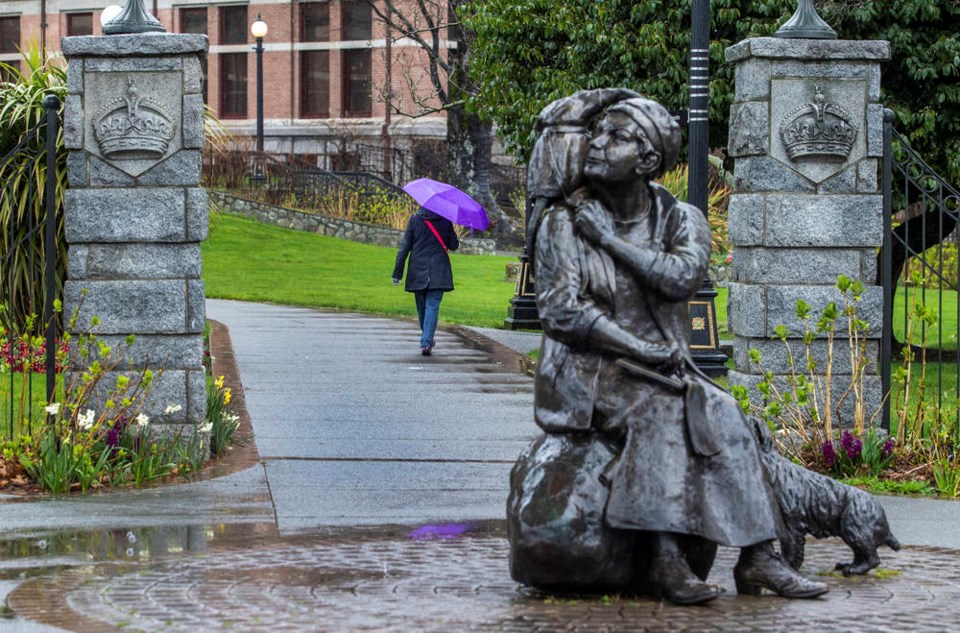A retired civil servant who has been compiling Environment Canada weather data for years and describes himself as a “weather geek” says our long dry spell isn’t as unusual as it seems.
Steven Murray has compiled detailed weather data from the Gonzales station in Oak Bay, which opened in 1914. He said Thursday that the longest dry stretch on record there is 63 days, between June 15 and Aug. 16, 1926.
Currently, Gonzales Station has had no “measurable precipitation” — 0.2 millimetres or more on the gauge — in 46 days, moving the latest dry patch, which started June 15, into fourth place overall.
In second place is a 54-day stretch in 1986, then 51 days in 1951 and 46 days in 1985.
The data has been confirmed by Environment Canada, which automated the station in 1993. Other federal weather stations are located at the University of Victoria and Victoria International Airport.
Murray noted the dry stretch in 1922 started on the same day it did this year, meaning we would have to go to Aug. 16 without any rain to beat the all-time record.
“Given that between now and mid-August is statistically the driest time of the year in Victoria, there is a chance that we could beat this record,” said Murray.
“It would be interesting if we beat the record for highest-ever temperature and longest-ever dry spell in the same summer.”
Murray flinches when he sees the media refer to this dry summer as unusual for the “rainy west coast.”
He said Victoria is the driest city in Canada during the summer months, citing the 30-year average for rainfall from June to August.
Victoria receives 54.4 mm on average, far less than Kamloops (92.5mm), Nanaimo (97.2), Penticton (103.3) and Kelowna (115.2). Vancouver gets 126 mm, and the B.C. cities are all drier than Calgary (216.5mm), Edmonton (223.2), Toronto (225.3), Winnipeg (246.5), Montreal (270.4) and Halifax (285.2).
dkloster@timescolonist.com
- - -
This story has been corrected to reflect this points:
• The record 63-day dry spell for Victoria was in 1926, not 1922.
• The Gonzales Observatory opened in 1914, not 1874. Environment Canada data for Victoria Gonzales goes back to 1898, but the 1898-1913 data was collected at a nearby former weather office on Cook Street.



